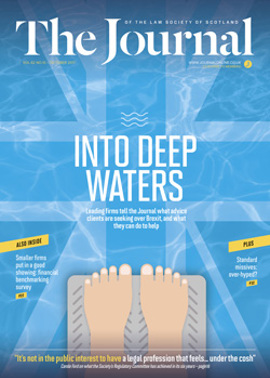Rely on HMRC's guidance at your peril

The Court of Appeal has overturned a ruling of the High Court, finding that HM Revenue & Customs is entitled to correct its guidance, at any time, and apply it to taxpayers with “open” affairs. “HMRC [was] not precluded from changing its policy by the fact that not every taxpayer’s losses could be reopened,” Lady Justice Arden said in R (Hely Hutchinson) v HMRC [2017] EWCA Civ 1075.
The case relates to the exercise of share options received through employment by a taxpayer, Hely Hutchinson. He reported the transactions in his returns from 1998 to 2000 on the basis that the share disposal resulted in no capital gain or loss.
However, in 2003, HMRC issued guidance on the base cost of shares acquired through the exercise of share options. This followed the case of Mansworth v Jelley [2003] STC 53, stating that the base cost was the market value of the shares on the date the option was exercised plus the amount of income tax payable. As shares are often sold on the same day the options are exercised, in many cases this resulted in taxpayers returning a capital loss.
The guidance was criticised on the grounds that it created losses from nowhere. However, HMRC confirmed that it would also apply to share options exercised before 2003, and many taxpayers, including Hely Hutchinson, submitted claims for such capital losses.
HMRC became concerned about the reasons behind Hely Hutchinson’s employers issuing the share options and opened his returns to investigate. Separately in 2009, HMRC announced that its 2003 guidance was wrong in law and would no longer apply to “open” returns, unless the taxpayer could show they had acted in reliance on the guidance and would suffer detriment as a result of the change. Hely Hutchinson’s returns were still “open” when the guidance was changed and HMRC therefore denied him the capital losses. Given that six years had passed since the initial guidance, many other taxpayers’ returns were “closed”, allowing them to benefit from the losses.
In 2014, the High Court quashed HMRC’s decision on the grounds that it should have considered whether it was unfair to treat Hely Hutchinson differently to those whose claims were “closed”.
Conspicuous unfairness
The Court of Appeal found in HMRC’s favour, focusing on the issue of “conspicuous unfairness”. HMRC had created a legitimate expectation that pre-2003 losses would be dealt with in accordance with the 2003 guidance. However, the court held that a public body is free to correct a policy, subject to there being sufficient unfairness to prevent the correction. The court stated that this unfairness must be “outrageous” or “conspicuous”, and that the unfairness suffered by Hely Hutchinson did not meet this high threshold. As a result, the Court of Appeal held that the new policy should apply to him.
It also found no conspicuous unfairness in relation to the decision-making process followed by HMRC, given that Hely Hutchinson was returned to the same position as when he first exercised the share options. Further, he had previously been warned by HMRC that it did not accept his loss claims, and the detriment he suffered was due to his own personal financial position, not from reliance placed on the 2003 guidance.
Regarding the issue of comparative unfairness, the court found that this must be considered at the time the decision is made. At the time HMRC denied Hely Hutchinson the losses it had no power to remove “closed” taxpayers’ ability to claim losses, therefore Hely Hutchinson was in a different position to these taxpayers.
Implications
HMRC will welcome this decision, as it sets the bar extremely high for taxpayers who wish to challenge its conduct, allowing it to change guidance without much consequence. However, there are around 600 taxpayers in a similar position to Hely Hutchinson who, as a result of this decision, are also unlikely to succeed in challenging HMRC.
There is a much wider impact for any taxpayer who wishes to challenge HMRC on the basis of a legitimate expectation, even if that expectation is based on HMRC guidance. They must show that they have suffered outrageous or conspicuous unfairness, a test that will be extremely difficult to meet in practice.
In this issue
- Form that misses the mark
- The dual role: before and after
- Don't just write – plan
- CMS enforcement: little help when needed?
- Flight or fight
- Reading for pleasure
- Opinion: Campbell Deane
- Book reviews
- Profile
- President's column
- Knowledge base becomes smarter
- People on the move
- Brexit: planning for "What if?"
- Report card
- Greater good and greatest need
- Finances: big not always better
- Doulas: living and dying well in Scotland
- Lobbying: the new regime
- Protect yourselves, Society warns
- Ending short sentences: impact on the courts
- Board policy: do not shake
- Brexit and professional sport
- Rely on HMRC's guidance at your peril
- Standard missives: an unachievable dream?
- Let in-house keep you right
- Accredited specialists: five years can qualify
- What's Daisy done?: Society's new campaign
- Law reform roundup
- Wartime honour
- Paralegal pointers
- Society sets up secure channel
- All fee earners now
- Stand up to your stammer
- The data imperative
- Ask Ash
- In-house: my client, my job?
- Q&A corner
- Giving cheques a new image






